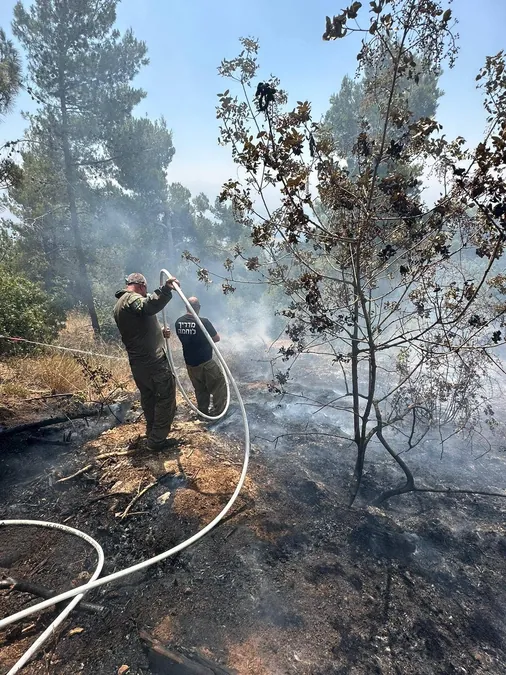
Life Under Siege: Israeli Community's Resilience Amidst Ongoing Hezbollah Attacks
2024-09-15
In the wake of relentless attacks from Hezbollah, Yulia Bar-Dan found herself back in her childhood home at Kibbutz Manara, situated frighteningly close to the Lebanese border. After displaying courage to return for the first time in six months, Yulia could only gather what little remains of a once peaceful life, a poignant reminder of the chaos that has enveloped her community since the horrific Hamas-led assault on October 7.
"I had just one hour to grab what I could, and I cried the whole time," Yulia shared in an emotional interview. The kibbutz, once a thriving settlement with a population of nearly 300, now bore the scars of war, resembling a desolate battlefield. The sounds of explosions filled the air as she entered her home, marked by a power outage and bolted windows—a grim echo of the insecurity they face daily.
Reports indicate that since Hezbollah entered the fray on October 8, more than 7,500 rockets have rained down from Lebanon into Israel, with over 200 drones crossing the tense border. Tragically, these bombardments have resulted in 44 deaths, numerous injuries, and the forced evacuation of approximately 62,000 residents from northern communities. The escalating violence has devastated local businesses and agriculture, costing billions in damages and inflicting a crushing psychological toll.
Yochai Wolfin, the community director of Kibbutz Manara, highlighted the looming threat of Hezbollah’s Radwan forces, which have long been preparing for an incursion into Israeli territory. Many residents took it upon themselves to evacuate before official directives were issued. “We’ve known for years that they have a plan to invade the Galilee region,” Wolfin remarked, illustrating a pervasive sense of dread that gripped the community.
Naor Shamia, a resident and community leader, described the traumatic experience of fleeing as a direct response to the fear of violence akin to the massacres witnessed elsewhere in Israel. He has since dedicated himself to leading a rapid response unit comprised of community members with military backgrounds to counter potential Hezbollah incursions. Shamia's new reality involves constantly adapting to threats that can emerge at any moment, highlighting the vulnerability of Kibbutz Manara, which sits on an exposed ridge.
The agricultural landscape that once nourished the kibbutz has transformed into a casualty of war. Fields of grapes, cherry, and apple orchards have been damaged or abandoned as residents navigate the dual challenge of fear and the physical dangers posed by missile strikes.
Despite the devastation, Yulia remains steadfast about her home. Her husband, Nadav, has joined the ranks of the rapid response unit, while she and their children are packed into a single room on a safer kibbutz further north. "We’re living in a state of war without an official declaration. The fear is ever-present," she expressed. "And yet, this is our home. Leaving isn’t an option."
The community's hope rests on the belief that their sacrifices will spur the government into action, bringing attention and resources to the predicament faced by northern Israeli residents. "The world may turn its back, but we cannot abandon our land," Yulia passionately stated, reinforcing her commitment to reclaiming their lives amidst the chaos.
As the conflict continues to unfold, the resilience of communities like Kibbutz Manara shines brightly against the somber backdrop of violence, underscoring an unyielding spirit that refuses to be extinguished.


 Brasil (PT)
Brasil (PT)
 Canada (EN)
Canada (EN)
 Chile (ES)
Chile (ES)
 España (ES)
España (ES)
 France (FR)
France (FR)
 Hong Kong (EN)
Hong Kong (EN)
 Italia (IT)
Italia (IT)
 日本 (JA)
日本 (JA)
 Magyarország (HU)
Magyarország (HU)
 Norge (NO)
Norge (NO)
 Polska (PL)
Polska (PL)
 Schweiz (DE)
Schweiz (DE)
 Singapore (EN)
Singapore (EN)
 Sverige (SV)
Sverige (SV)
 Suomi (FI)
Suomi (FI)
 Türkiye (TR)
Türkiye (TR)